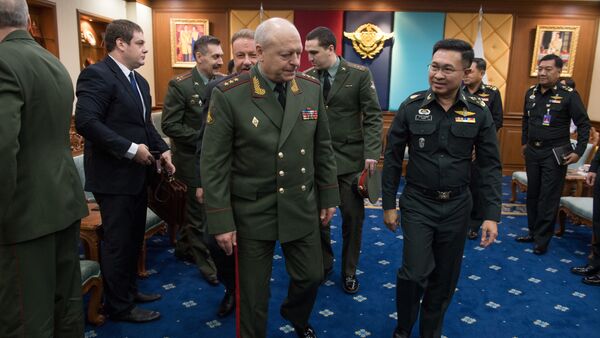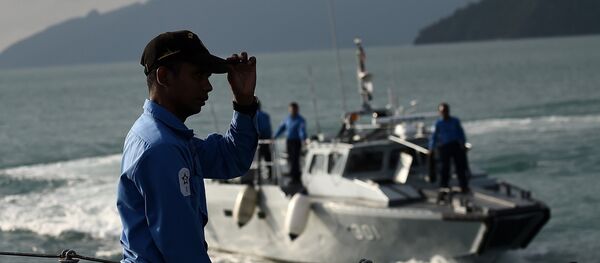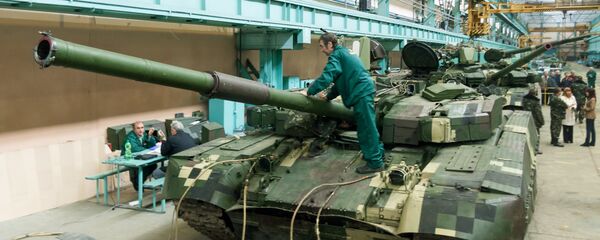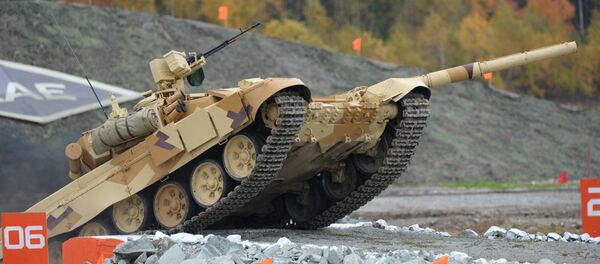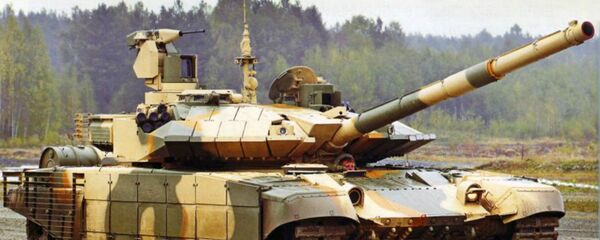During Salyukov's trip, which started Wednesday and wrapped up on Friday, the senior officer met with high-ranking Thai Defense officials, and visited Royal Thai Army facilities, including a mechanized section and a counterterrorism training center.
Reporting on the trip has been scant, with Russian media limiting their coverage to official announcements at the start and the end of the visit. Among the few details that emerged was news that the Russian officer had been gifted a badge and beret by Thailand's special forces. Salyukov was also said to have an entry into the book of condolences over the death of King of Thailand Bhumibol Adulyadej, who passed away last fall.
The Russian Embassy in Bangkok has been similarly tightlipped, telling reporters only that "the two sides discussed the current state and prospects for military and military-technical cooperation."
But what seems to have piqued the interest of observers about the visit was what wasn't said. In his analysis on the subject, military observer Sergei Ishchenko pointed out that it was curious for the Russian commander, undoubtedly busy with the war in Syria, NATO's buildup on Russia's borders, and other important issues, to make the long trip to Southeast Asia just for a goodwill visit.
Accordingly, Ishchenko noted, "it's natural to assume that in fact, something more important may have been discussed behind closed doors…But what exactly? The only reasonable theory, in my opinion, is money – and lots of money; for something less it would not have been worth sending such a high-ranking commander to the country."
The question that follows is: money for what? What kinds of weapons does Russia have which Bangkok may be interested in?
Here, the observer recalled the story from earlier this year about the Thai Defense Ministry's decision to terminate its contract with Ukraine on the purchase of several dozen T-84 Oplot main battle tanks.
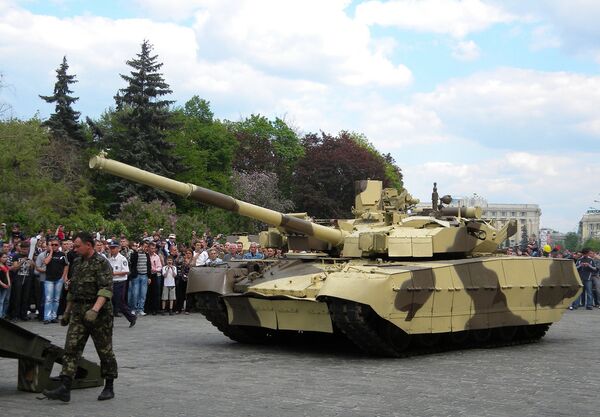
Covering the story, Thai media reported that the country now plans to buy the VT-4, a third generation Chinese MBT built by heavy machinery manufacturer Norinco. Bankok apparently already has a contract with Norinco for 28 VT-4s.
Ishchenko suggested that it's the T-90s' active-combat 'testing' in Syria that turned it into an alluring prospect for Thai generals. "I'm confident that events in Syria were the turning point for the mood of the Thai military," he wrote.
"There, according to reports by foreign news agencies, several dozen 90s-vintage…T-90s are taking the most active role in combat in Bashar Assad's armies. And they're doing so practically without losses, even though the tanks are used to decisively resolve the outcome of key battles. With their participation, the most important settlements, including Aleppo, have been freed from the terrorists."
These videos are "powerful advertising" for the tank's defensive and combat capabilities, Ishchenko noted, and it's therefore little wonder that Uralvagonzavod, the T-90's maker, is flooded with orders from everyone who has the money to spend.
Just as importantly, the latest modifications of the T-90, including those introduced into the Russian army, also have an array of improvements, including better welding, casting, crew protection, munitions and other systems.
Ultimately, Ishchenko stressed that whatever the truth is behind Salyukov's Thailand visit, it's fair to assume that he probably didn't travel all the way to the country just to admire its beautiful orchid gardens.
